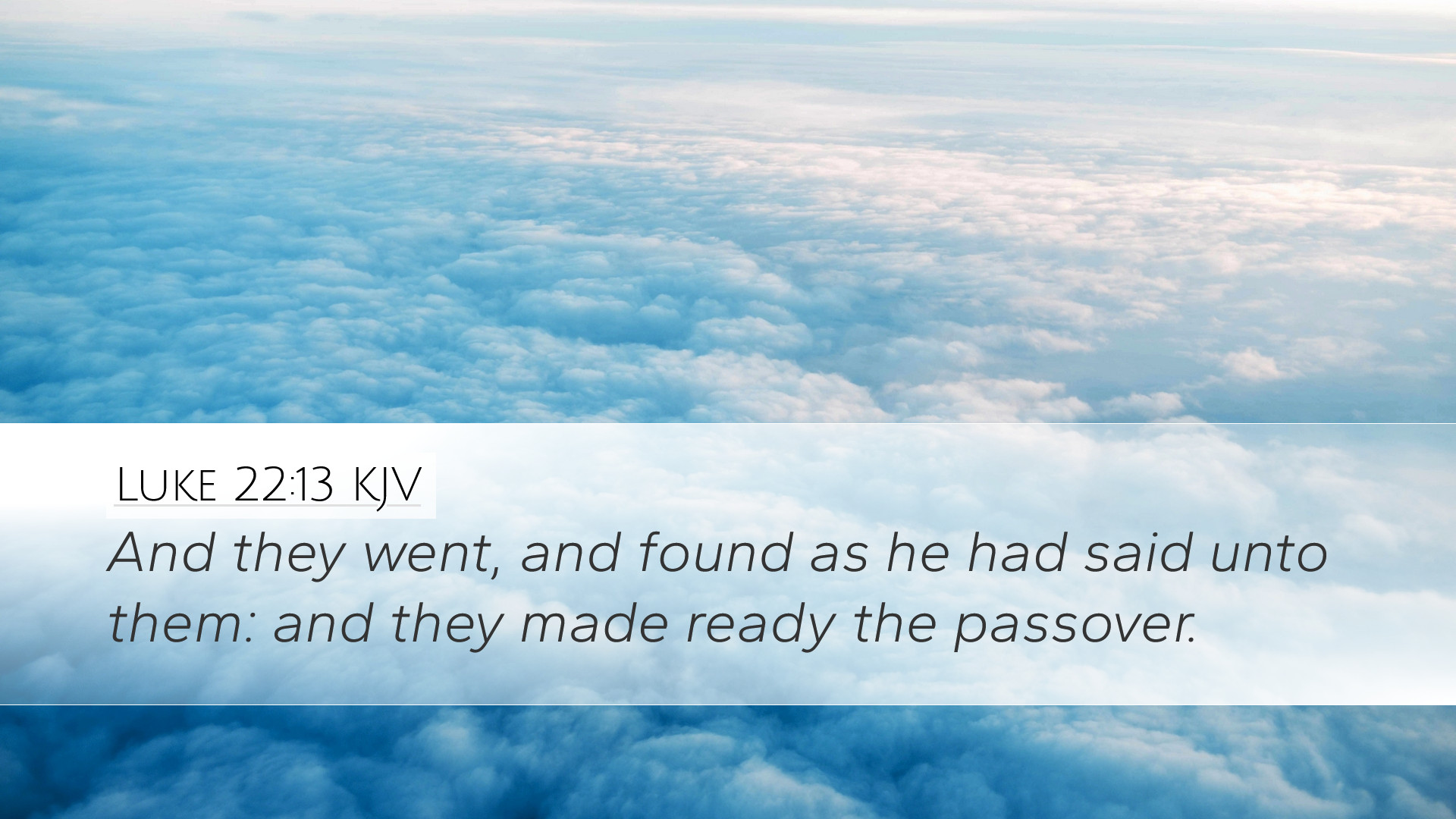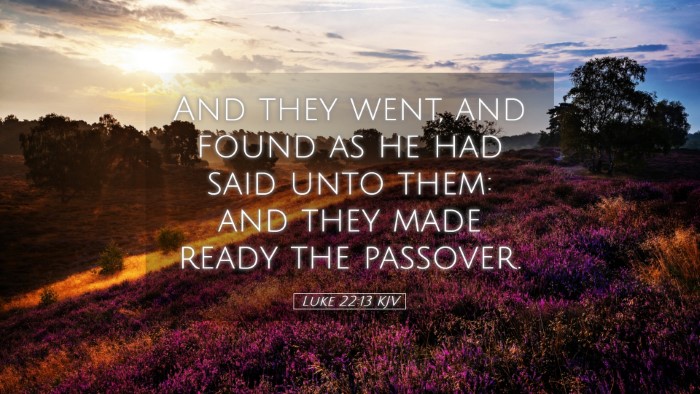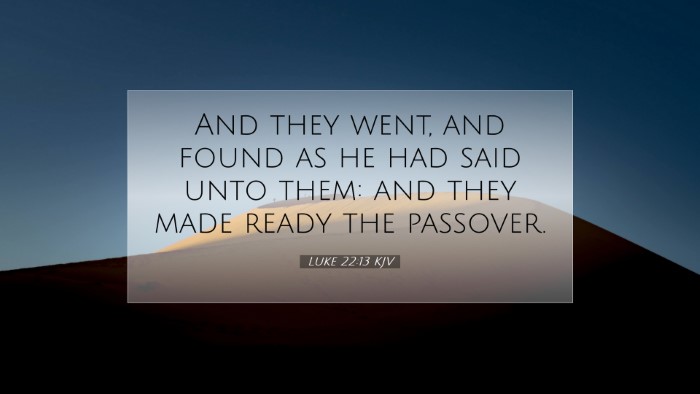Commentary on Luke 22:13
Verse: "And they went, and found as he had said unto them: and they made ready the passover."
Introduction
This verse stands at a pivotal moment in the narrative of Luke's Gospel, encapsulating the preparation for the Last Supper. It reflects the meticulous fulfillment of Christ’s prophecy and the unwavering obedience of His disciples. This commentary draws insights from various public domain sources, including those of Matthew Henry, Albert Barnes, and Adam Clarke, to provide a comprehensive understanding of this significant passage.
Contextual Background
The events leading to Luke 22:13 are laden with weighty theological implications. The Last Supper marks the culmination of Jesus' earthly ministry, foreshadowing His imminent suffering and sacrificial death. The Passover, a central Jewish feast celebrating Israel's deliverance from Egypt, is transformed by Christ into a new covenant meal, symbolizing His body and blood.
Disciples' Preparation
Jesus instructs His disciples to prepare for the Passover meal. As noted by Matthew Henry, this act of preparation is critical as it highlights their role in the unfolding salvation narrative. The meticulous nature of their task symbolizes the attentive care required in spiritual matters.
The Obedience of the Disciples
The disciples' response to Jesus’ command reflects their fidelity and trust in Him. Albert Barnes emphasizes that they found everything precisely as He said. This illustrates the reliability of Christ’s word and serves as an admonition to all believers to trust in God’s promises. Such obedience is foundational to faith in action.
Spiritual Significance
This verse not only records the disciples’ action but also conveys profound theological truths. The Passover serves as a backdrop for Jesus' impending sacrificial death. As Adam Clarke notes, the keyword "found" signifies discovery not merely in a physical sense but also a realization of deeper truths about God’s redemptive plan.
Divine Providence
Matthew Henry illustrates that the arrangements for the Passover were divinely orchestrated. The specific directions given by Jesus emphasize that nothing occurs outside God's sovereign will. The disciples were not merely acting on human initiative but participating in a divine strategy preordained for humanity’s salvation.
Lessons on Faithfulness
Furthermore, the verse serves as a reminder of the call for faithfulness in carrying out God’s mission. Albert Barnes comments on the disciples’ faithfulness, which paves the way for Christ’s sacrificial love to be enacted. All who follow Christ are called to a similar disposition—diligently preparing themselves and others to encounter the Holy.
Theological Reflections
As theologians reflect on this verse, several themes emerge: preparation, obedience, divine fulfillment, and covenantal significance. It invites deep introspection regarding the believer's role in God's redemptive history.
Covenant Theology
Luke 22:13 prefaces the institution of the Lord’s Supper, which is laden with new covenant implications. Adam Clarke notes that while the Passover looks back at the Exodus, the Last Supper signifies a new exodus through Christ’s death. Thus, the event stands as a pivotal point in biblical theology, bridging the old and new covenants.
The Importance of Community
The shared meal of Passover emphasizes the communal aspect of worship and fellowship in the Christian faith. Henry notes that this gathering is essential for the strengthening of the community of believers, reflecting on how the acts of obedience lead to communal nourishment and unity within the body of Christ.
Pastoral Applications
For pastors and church leaders, this verse provides guidance in fostering a culture of preparedness and obedience in the congregation. Drawing from the insights of Matt Henry, leaders are encouraged to cultivate an environment where the Word of God is trusted, and believers are equipped to faithfully carry out His commands.
Encouragement for Believers
Believers can find encouragement in the certainty that God’s plans come to fruition as they engage in faithfulness akin to the disciples. Albert Barnes highlights the assurance found in following Christ’s guidance, reminding believers that they will not be abandoned but will find their paths aligned with divine purpose and promise.
Call to Action
In closing, Luke 22:13 beckons all who read it to respond with readiness and obedience. The intricate interplay of prophecy and fulfillment forms a fertile ground for personal reflection and communal practice. In this light, Henry echoes the sentiment that every believer is called not just to observe but to actively participate in God's salvific work.


